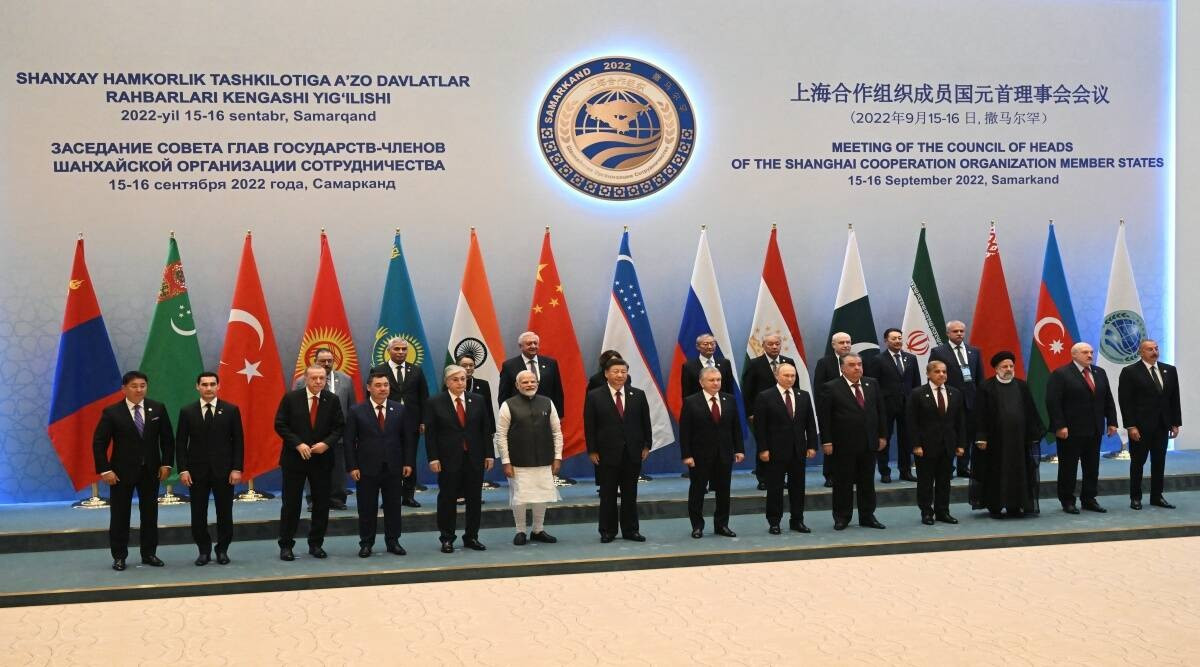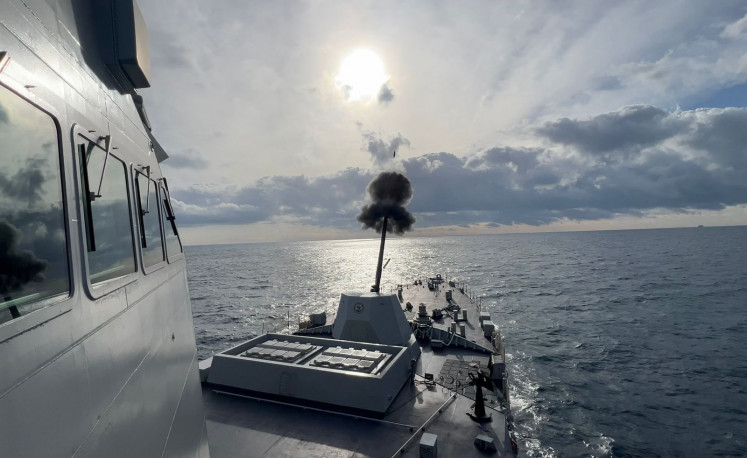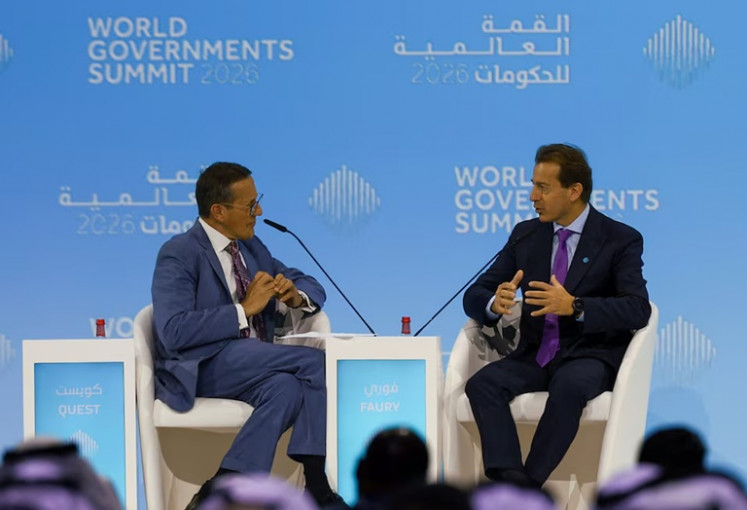Popular Reads
Top Results
Can't find what you're looking for?
View all search resultsPopular Reads
Top Results
Can't find what you're looking for?
View all search resultsSCO manifests Indian strategic autonomy
India is treating the SCO much like it does its relationship with East Asia Summit (EAS).
Change text size
Gift Premium Articles
to Anyone
I
ndian participation at the 22nd Summit of the Shanghai Cooperation Organization (SCO) member states recently drew attention. It was a clear manifestation of India’s strategic autonomy as the SCO is widely regarded as a group of autocratic regimes with India’s the democratic freshener. India views the SCO as an area of necessary engagement as its near neighborhood cannot be ignored.
SCO was set up in June 2001 and India became a full member in 2017. The Council of the SCO Heads of State is the highest decision-making body of the organization and meets for an annual summit that is hosted by a member state of the SCO. PM Narendra Modi leads the Indian delegation to the SCO summit annually. The last two summits in 2020 and 2021 were virtual. In Samarkand, Uzbekistan held a full-physical format summit.
In a restricted session the eight member states participated and the extended session brought in members along with the observers and the invited countries. The summit agreed to bring in Iran as a member next year, Belarus is possibly next, whose membership will take a little longer.
India's main contribution toward the discussions at the SCO were focusing on development in the region and thus contributing to global development. Modi emphasized the centrality of the aspirations of the Central Asian republics within the SCO just as ASEAN centrality is the core of the Indo-Pacific construct. Modi also called for closer cooperation to fight terrorism in the region.
Emphasizing regional connectivity, Modi said that this was essential for closer economic and trade engagement This is significant for India and Central Asia, particularly as Iran is to be admitted as a member at the next summit to be held in India in 2023.
The Chabahar port in Iran is an important project which India and Iran are developing for regional connectivity along with the North-South Transport Corridor. In better times, this connectivity also passed through Afghanistan, where India contributed roads and railways for providing linkages.
Given the current global cleavages and that China and Russia dominate the SCO, Modi played his diplomatic cards deftly. He kept away from security related issues other than terrorism. Instead, he focused on economic recovery through enhanced trade, commerce, humanitarian and development partnerships linked to increased connectivity.
Among the several documents signed at this summit, the Samarkand Declaration, is a consensus among all members. Significantly, India recused itself from the paragraph dealing with the Belt and Road Initiative which was endorsed by the other members. India always disagreed with this and therefore, that paragraph does not have India's concurrence.
Another important statement on this occasion was on climate change which had a large Indian initiative. The SCO decided to create a special working group on startups and innovation. India would chair this SWG permanently. This manifests India's willingness to share its startups entrepreneurship and ambience with other SCO countries as part of a post-pandemic recovery program.
Another Indian initiative which was accepted was the establishment of an expert working group on traditional medicine where Central Asia has several starting points which can be developed.
Against terrorism, which is one of India's main agenda within the SCO, India works closely, even though with China and Pakistan there are differences on the ground, bilaterally and in the United Nations. India's diplomatic efforts at the SCO led to all SCO countries, clearly recognizing the threat of terrorism in the region. SCO will work toward developing a unified list of terrorists, separatists and extremist organizations whose activities are prohibited within the SCO member states.
It was a good occasion for Modi to meet other leaders. Modi had important bilaterals with leaders of Uzbekistan, Russia, Iran and Turkey. With Turkey there has been a difficult relationship. India showed depth in diplomacy in creating bridges wherever they can be created. In the conversation between Modi and President Vladimir Putin, the well reported significance of Modi's advice that this is not an era of war is well noted. India’s autonomous polices allow it such leeway for constructive dialogue.
The entire effort of Indian diplomacy through the SCO while at the same time, being a member of the Quad, associating with the Group of Seven and partnering other countries in diverse ways shows that India is treating the SCO much like it does its relationship with East Asia Summit (EAS).
However, unlike the EAS, which is more balanced, the SCO is dominated by Russia and China. Thus, at the SCO summit, the effort was to find ways and means to make the organization effective and useful to its member states and their people.
The implosion of Afghanistan, the tentative nature of governance in Pakistan and domestic compulsions in China as well as the Ukraine crisis generated uncertainty in Russia all mean that a churning in the region is possible.
India does not want a disturbed Central Asia but wants Afghanistan to settle down. Therefore, the effort was to create bridges of harmony by focusing on development, connectivity, trade, and investment. India's willingness to offer its own strengths to contribute to this is an effective show of autonomy exercised by India.
***
The writer is a former ambassador to Germany, Indonesia, ASEAN and the African Union, and chair of Confederation of Indian Industry Task Force on Trilateral Cooperation in Africa.











